Politics snagged on society's sharp divides
- Published
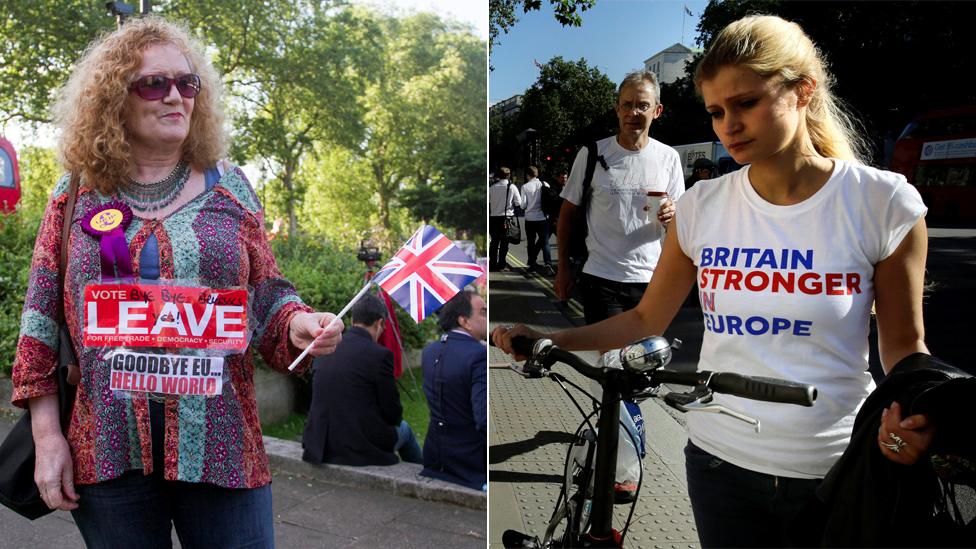
Are there now two distinct tribes in the UK?
The referendum has carved our country into two camps, sharpened existing divisions, and created some new ones.
Scotland, external against England. Young versus old. Class against class.
If this was simply a vote against Westminster, you wouldn't know it from the behaviour of the political classes.
They are fighting their own internal battles, and where there might be policy, a roadmap towards Brexit, there is silence, a vacuum, an absence.
I suspect the next few months will be chaotic, and both sides of the great divide will be sniffing the air and scenting betrayal.
This is more than simply about membership of the European Union, external.
It is about how we see ourselves as a nation.
Brexit: The story of an island apart
"I want my country back," is a familiar refrain, and not just here, external.
It was the cry of the Tea Party in the United States and is now trumpeted by Donald Trump's supporters.
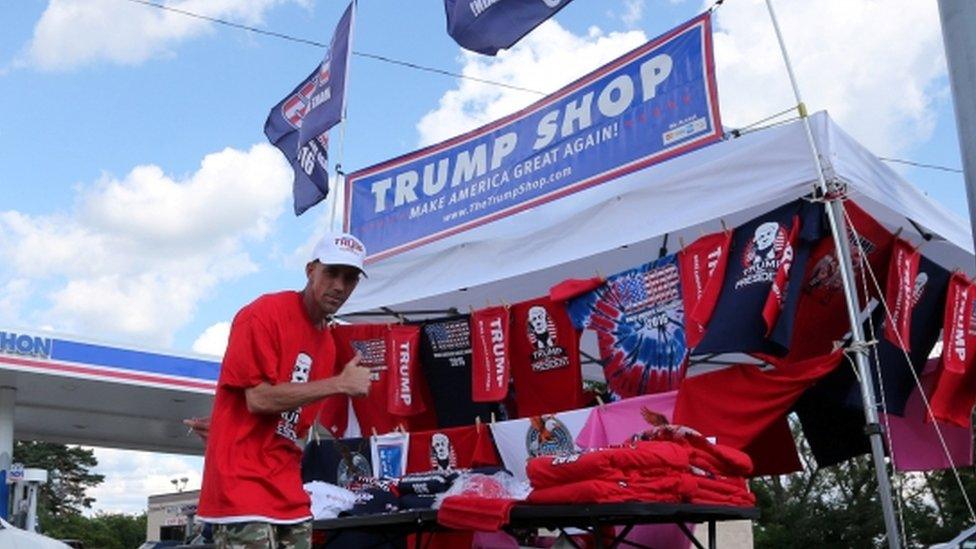
Donald Trump has appealed to US voters who feel politicians no longer represent their interests
The words are a code.
They could simply be a plea for a stronger, fitter America.
They could mean favouring rural values over metropolitan ones.
And, for some, it is a yearning for a time there was a white man in the White House, and official signs weren't in Spanish.
We heard the same slogan, external in the referendum too.
Work out the British meaning yourself.
But there is an ironic twist on the phrase after the big vote.
Now, it is another lot who feel they have lost their country, external and had the future snatched away.
To describe these people as "bad losers", external is to miss the point.
Neither side regard this as a game of cricket, a bit of fun, where you can shake hands afterwards and go into the pavilion for tea.
What sort of country are we?
For both sides, it is about how we see ourselves and what sort of country we are.
For many on the Remain side, this sense of history going against them, is a new feeling, closer to a bereavement than a political reverse.
Their new-found insecurity and unexpected anger is hot and heartfelt.
It has been sharpened by the apparent increase in assaults, external on people assumed to be foreign or immigrants.
Many who voted Remain may suspect Prime Minister David Cameron was right when he warned of a narrower, less tolerant country.
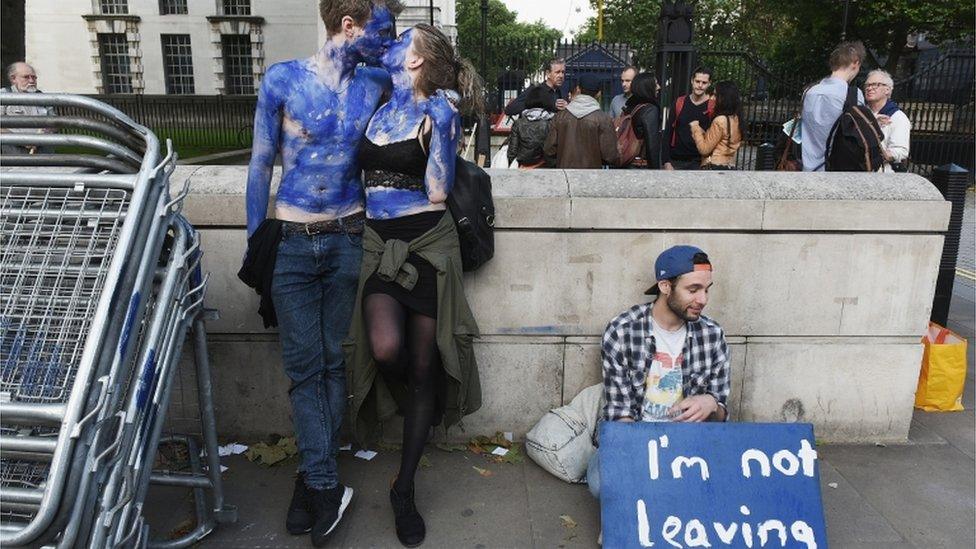
Some Remain supporters are searching for ways not to accept the result
People are thrashing for ways not to be part of "Project Leave".
Scotland may go it alone, and Gibraltar might either do that or simply join Spain.
A London city state is fanciful, but the petition calling for it is getting signatures.
I know two families talking seriously of moving to Scotland so they can stay in the EU.
All this adds up to a message from many who voted Remain: "We ain't going to take it. No way."
The same would have been true if the vote had gone the other way.
Leave supporters would have been furious, and, I assume, pressing for another vote as soon as possible.
In desperation, Remainers are looking at ways of stopping Brexit, external, and trying to interpret "leave" as "stay".
We could end up in a situation where everybody feels betrayed, everybody feels "left behind", external.
We have heard a lot about the group who feel left behind , externalby a both a more global economy and the demise of heavy industry.
It is a big part of the story, but it is not the only story - 52% of the UK is clearly not made up of elderly unskilled workers.
Labour's problem
It might be useful to look through the lens of the Labour Party's huge English problem.
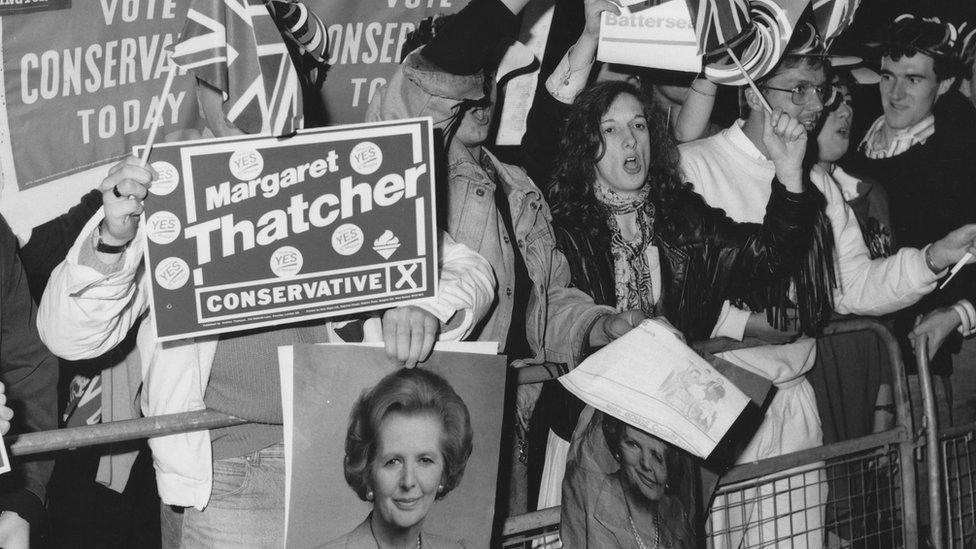
Margaret Thatcher won votes among working-class voters
Social democratic parties all over the world tend to be a coalition of a highly educated often metropolitan middle class, often working in the public sector, and more working-class, often unionised, voters who tend to be more socially conservative and patriotic.
This latter group have long been a key prize. Think Reagan Democrats, external or Margaret Thatcher's working-class supporters.
In Labour's case, this alliance has been under strain for many years - as groups such as Blue Labour, external have long been saying.
Immigration is right at the heart of the divide.
For Labour, it is hard to crack in policy terms. But it is also a hugely important symbol.
Many in the first group think a liberal immigration policy, like membership of the the European Union, makes for the sort of society they celebrate - they are not simply "tolerant" but enthusiastic about diversity, be it in terms of sexuality or a multicultural society.
The second group feels immigration causes them economic pain and in some case culture shock: it is an affront to their sense of a homogeneous country.
Many will be less worried about the future of Brexit - their children won't be going to European universities, and they won't be planning to work in Germany.
But there is another, more ideological way, of looking at this, examined in the work , externalof Cardiff University's Professor Richard Wyn Jones.
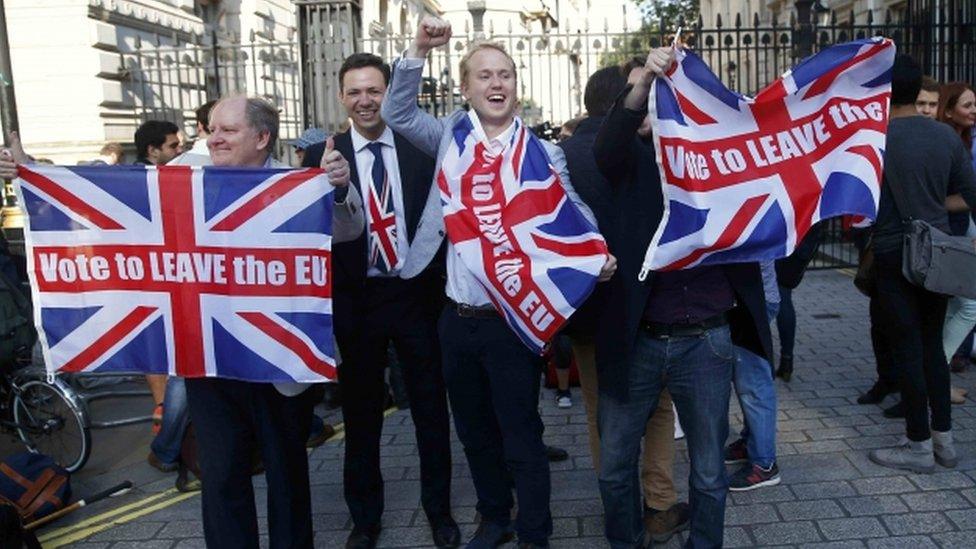
Leavers tend to champion the values of a solid state
Leavers tend to believe in a strong unitary state, based at Westminster, ruling over the whole of the UK.
They dislike devolution and the EU in equal measure, and believe not so much in the old British Empire, but in what some have called the English Empire.
Those in the "Remain" camp tend to be more relaxed about more diffused sovereignty and identity, and with power either devolved down to the nations that make up our country, or up to supra-national organisations such as the EU.
It is not too much of a stretch to suggest those beliefs are reflected in cultural differences too.
If you want a solid state, as it were, you are more likely to believe in solid identities.
Two nations indeed.
It is hard to say what this would mean for party politics as it fragments before our eyes.
But don't underestimate the anger in the Remain camp with those who make up the "left behind".
In the words of Lily Allen, "we hate what you do... we hate your whole crew... please don't stay in touch".
Perhaps, most simply, it will fracture Labour's old class alliance, and lead to some deal with those who like the Lib Dems and those Tories who value the single market over curbing immigration.
Referendums tend to be a device to keep divided parties together.
This one has not only torn the parties asunder but divided the people.
It is hard to see how the political process over the next few months and years will serve to heal it.